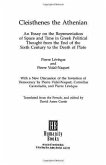Socrates' Education to Virtue argues that Plato's account of Socrates offers the fullest account of virtue and of the place of virtue in political life. Focusing on Platonic dramas such as the Symposium, Alcibiades Major, and the Republic, Lutz recounts how Socrates came to understand the longing for the "noble" and to believe that this longing is best satisfied by the search for knowledge or wisdom. By scrutinizing how Socrates' conversations allow him to acquire, extend, and confirm his knowledge of eros and of noble virtue, the book recovers a powerful, concrete, and nondogmatic Platonic reply to ancient critics of philosophy such as Aristophanes and suggests a further Platonic response to modern critics of classical rationalism such as Nietzsche and Rorty. Moreover, it shows how Socrates' education to virtue teaches him that the philosopher must always respect and examine alternative accounts of nobility and excellence. The book argues that the recovery of Socratic education can strengthen liberal democracy not only by broadening and invigorating political, moral, and religious debate but also by serving as an example of virtue in an open society.








